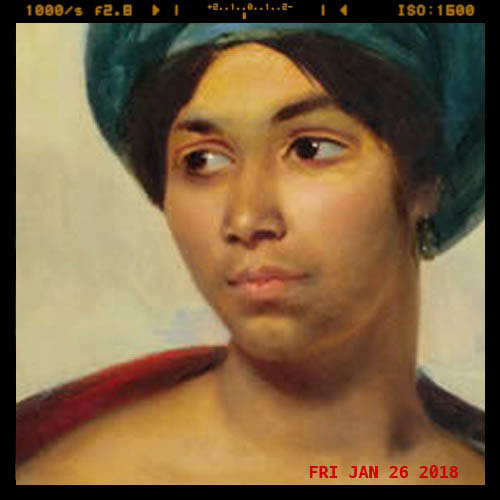Ask a Badass is an advice column answered by history’s hidden badasses, writing as they see their whole lives and our modern world.

Dear Badass,
My parents moved from Manila to a small Midwestern town and had one kid, me. Our town was small enough that I knew for a fact that we were the only Asian family for miles. Sometimes it was no big deal and sometimes kids were assholes, but the big thing was always being out of step. I was the one who ate adobo instead of peanut butter and jelly. My classmates were varying shades of Protestant and Agnostic. I could say the rosary before the pledge of allegiance. Money’s always been tight, but we’ve saved for ages so I could visit our family in the Philippines before going to college. I was looking forward to it for so long, but maybe I got my hopes too high. I thought I would finally be somewhere I fit in, but I’ve never felt more alone than I did in a place where everyone looks like me. I’m about to leave for college, but I’m totally thrown. How do I figure out where I fit in?
There’s No Place That’s Home
Dear There's No Place That's Home,
I wonder which of us is the more fortunate. You live in a time of movement and there is a whole community of people with their feet in two worlds. If you don’t meet them in college, you can find them with the tap of a button. My life took me across Germany and the Netherlands, but I never saw anyone like me.
On the other hand, few of those I met looked for differences. Most of my neighbors had never travelled from the place they were born. My customers in the royal court of Den Haag usually had a kinsman at sea, but my homeland across the Rhine was as distant to them as the homeland of my father on the Guinea coast. I lived my life in displacement, but I never knew to give this loss a name.
It was hard to map the gulf between myself and those around me. In Diez, I was the orphan daughter of the dark servant to the returned count. In Den Haag, I was the Black German. I was also a working woman who moved through the court and returned to the street of tailors, at home in neither place. I drew my foreignness around me like a cloak and kept myself aloof and safe.
I did not have the luxury of speaking truth, even to myself. I was a young girl in a world that was not kind to those without protection. I depended on the patronage of the family who had been given my father as a gift when he was a young boy. I did not want to think that on the other side of that kindness lay a presumption of ownership. I did not want to think that the gilded refinement of the royal court rested on a foundation of selling my father’s people. I could not keep myself from starving if I let myself think about these things, so I locked the words in my throat. My voice became whispered with the effort to speak around those words.
I was almost thirty, past the age to marry, when I met a man living separate like myself, a German soldier in the heart of this new Dutch monarchy. I bore children, finally, even moving to his family in Delft while he finished his time as a soldier. We moved many times in his next career, replanting our growing family each place we went. We were foreign in each place, but in our home, we had our refuge. Our children prospered and when I finally went to my rest, he followed me soon after.
I would not advise you to follow my path. At sixteen I was alone in the world, exotic printed on my face and in my tongue. I could find no other path but separation and silence. It was difficult to climb from this valley, even when daily gabble of children filled our home. I would suggest you seek those that understand your experiences and speak even the most uncomfortable truths. But I do believe you can take hope from my story. When I felt most separated, outliving my patrons and any hope of a family of my own, I stumbled into a new life.
Know that you can always make your world anew.
Sophia Wilhelmina Cupido
Born 1802 to Willem Frederik Cupido and Catharina Lowe, likely in Diez. Died September 26, 1862, in Vught. Willem Frederik Cupido was given to the Dutch Stadhouder when he was a boy. As an adult, he was a paid retainer who followed Willem V into exile, during which he married a German woman. Sophia Wilhelmina was the only one of her siblings to survive childhood and moved to The Hague when she was sixteen with the support of the reinstated royal family. She eventually started a family with a soldier from Dillenburg, moving all over the Netherlands with him after he became a tax collector.
To read more about Sophia’s family, check out Esther Schreuder’s book.
Fill out our form, and we’ll let you know if one of the badasses responds!